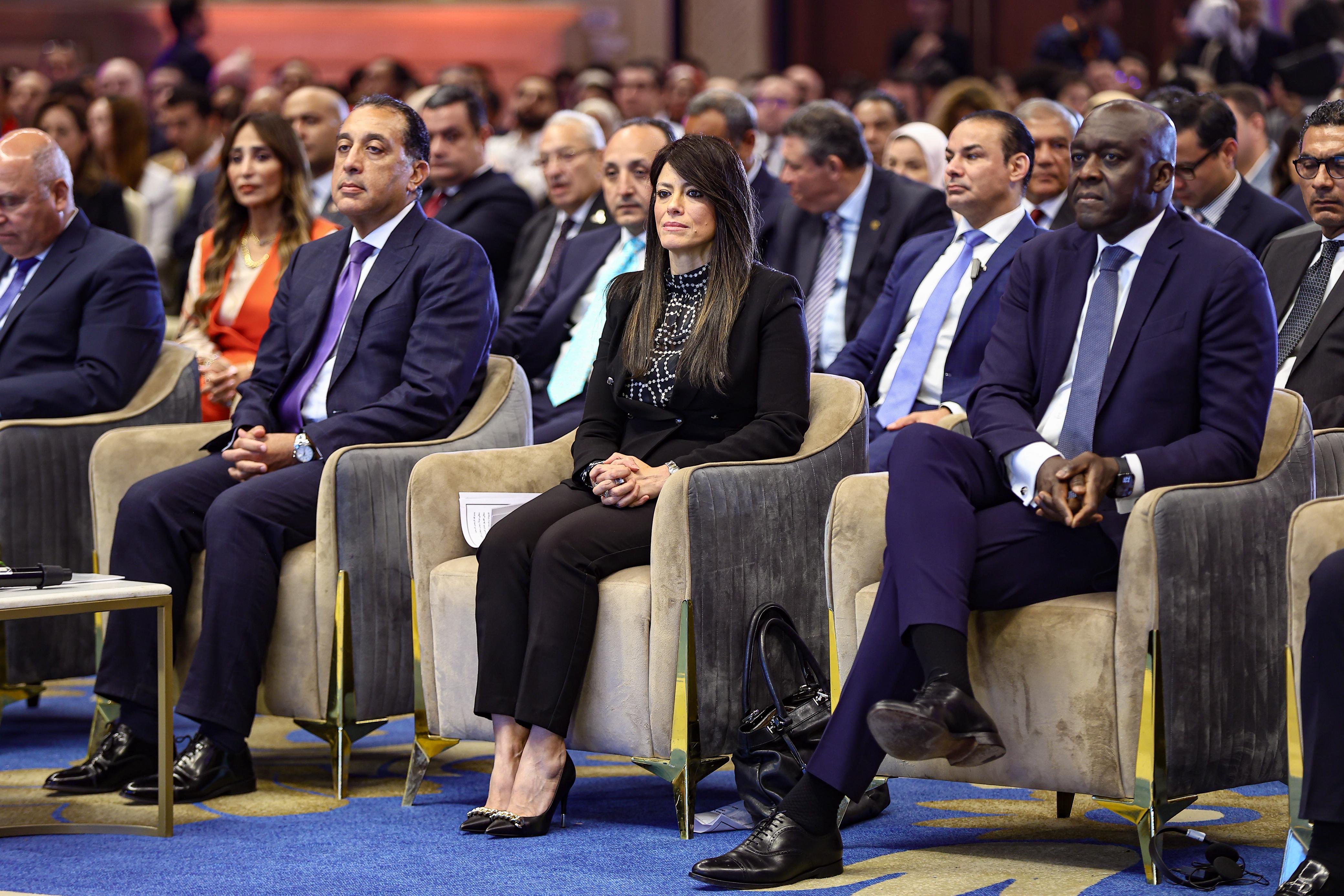Our relationship with Egypt goes beyond traditional financing to a strategic partnership to transform the structure of the Egyptian economy.
The European Investment Guarantee Mechanism strengthens the flow of investments into the Egyptian economy in strategic sectors.
IFC has mobilized investments and financing worth $4 billion for Egypt’s private sector since 2020.
IFC has become a global platform connecting international investors with promising opportunities in Egypt.
Strong political leadership and significant reforms have empowered the private sector and opened the way for international financial institutions in Egypt.
The World Bank Group (WBG) and the IFC reaffirm their full commitment to supporting Egypt's vision to build a competitive economy and a strong private sector.
Mr. Makhtar Diop, Managing Director of the International Finance Corporation (IFC), praised the success of the Arab Republic of Egypt in mobilizing development finance and directing it toward its national priorities for inclusive and sustainable economic growth.
This came during his speech at the conference organized by the Ministry of Planning, Economic Development, and International Cooperation under the title “Development Finance to Foster Private Sector-Led Growth & Jobs”, under the patronage and in the presence of H.E. Dr. Mostafa Madbouly, Prime Minister of Egypt, and attended by a host of ministers, the Federation of Chambers of Commerce, the Federation of Egyptian Industries, business councils, development partners, and ambassadors.
During his speech, Diop explained that the conference comes as a real reflection of the long decades of constructive cooperation and close partnership between IFC and the Arab Republic of Egypt, extending over more than five decades, notting that this relationship has gone beyond traditional financing and evolved into a strategic partnership aimed at achieving real transformation in the structure of the Egyptian economy, expanding job opportunities, and promoting growth based on innovation, equity, and sustainability.
He added that the conference marks new milestones of cooperation that emphasize the depth and effectiveness of this partnership, with the launch of a new European Investment Guarantee mechanism worth €1.8 billion, which aims to boost investment flows into the Egyptian economy, especially in strategic sectors such as clean energy and advanced industry, which comes within the framework of supporting private sector investment in priority economic sectors.The conference also witnessed the signing of an agreement between the IFC and AMEA Power to support the establishment of the first battery energy storage system for renewable energy, emphasizing that this ambitious project will enable Egypt to efficiently store clean energy, utilize it in supporting manufacturing processes, develop national industries, and create sustainable jobs aligned with the state’s vision for green transformation and low-emission development.
He also added that these qualitative initiatives are not just financial agreements or declared figures but represent a real qualitative leap in the investment climate, reflecting international investors' confidence in the future of the Egyptian economy as well as enabling the actual transfer of advanced technology and global technical expertise, contributing to building competitive local capabilities and creating development led by national competencies.
He pointed out that since 2020, development partners have mobilized more than $15 billion for Egypt’s private sector, including $4 billion from the IFC, whether through direct investments or by encouraging other investors to inject capital into the Egyptian market.
Furthermore, Diop added that the IFC has become a global platform that connects international investors with promising opportunities in Egypt, and focuses more on capital investments that enable companies to expand and innovate, especially in their early growth stages, moreover the IFC believes in the importance of entrepreneurship and places special focus on the financing of small and medium enterprises, which constitute more than 90% of Egypt's informal economy.
The Managing Director of the IFC emphasized that all this could not have succeeded without the integration of the World Bank Group’s tools, withThe International Bank for Reconstruction and Development (IBRD) financing infrastructure and supporting policy reforms, while the Multilateral Investment Guarantee Agency (MIGA) provides guarantees against political risks. The IFC, in turn, provides financing and technical expertise to the private sector, which enabled a doubling of financial commitments to about $65 billion during the current fiscal year.
He noted that the newly announced European guarantee mechanism is a powerful addition that will accelerate private investment in priority sectors with direct positive impact on local communities, whether in terms of training, employment, or technology transfer.
He also emphasized that all these tools remain sufficient if they are not coupled with a conscious political leadership that puts private sector empowerment at the heart of its policies, explaining that Egypt has already provided a model to follow in this regard through a package of bold reforms and ambitious programs such as the IPO program that allows the private sector a broader role in managing public assets without compromising state ownership.
In conclusion, Diop reaffirmed that the IFC and the World Bank Group are fully committed to supporting Egypt’s vision to build a strong, competitive, and inclusive private sector that is a key pillar of development and a constant source of opportunity for all Egyptians.
